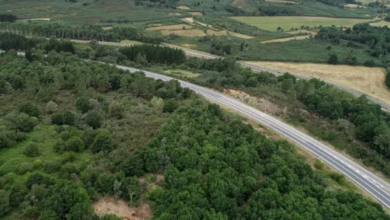
Agriculture, commonly abbreviated as ‘Ag,’ stands as a pivotal sector that shapes our society’s food production, economic stability, and environmental impact.
The evolution of agricultural practices has been marked by technological advancements that continue to revolutionize the industry, enhancing efficiency and productivity.
However, as the demand for sustainable practices grows, agriculture faces challenges in balancing productivity with environmental stewardship.
Despite these challenges, the future of agriculture holds promising trends that aim to further optimize resource utilization and enhance sustainability.
The freedom inherent in agriculture allows for innovation, adaptation, and growth, ensuring the sector’s resilience and adaptability in the face of changing global dynamics.
Evolution of Agricultural Practices
As agricultural societies have progressed, the evolution of agricultural practices has been influenced by technological advancements and shifting environmental conditions.
Two crucial developments in this evolution are crop rotation and irrigation systems. Crop rotation involves alternating the types of crops grown in a specific area over different seasons to maintain soil fertility.
Irrigation systems, on the other hand, ensure efficient water distribution to crops, enhancing agricultural productivity and sustainability.
see also: Craigslist Mo Farm
Technology Transforming Ag Industry
With technology continuously advancing, the agricultural industry is undergoing a transformative shift, revolutionizing traditional practices and increasing efficiency.
Digital farming and precision agriculture are at the forefront of this revolution, allowing farmers to optimize resources, monitor crops in real-time, and make data-driven decisions.
These technologies enable more sustainable practices, higher yields, and improved environmental stewardship, shaping the future of agriculture.
Sustainability Challenges in Ag
The sustainability challenges in the agricultural industry present complex obstacles that require innovative solutions to ensure long-term viability and environmental resilience.
With climate change impacting growing conditions and threatening food security, farmers must adapt practices to mitigate risks.
Implementing sustainable farming methods, investing in resilient crop varieties, and promoting efficient resource management are crucial steps in addressing these challenges and building a more sustainable agricultural sector.
Future Trends in Agriculture
To navigate the evolving landscape of agriculture, industry stakeholders must proactively embrace technological advancements and sustainable practices to ensure resilience and productivity in the face of changing environmental conditions.
Future trends in agriculture include the adoption of vertical farming and automation to optimize space and efficiency. Precision agriculture techniques will continue to gain prominence, aiding in mitigating the impacts of climate change on crop production and resource management.
Conclusion
In conclusion, the agricultural industry has evolved significantly over time with the help of technology. However, sustainability remains a major challenge for the future of agriculture. As we look ahead, it is crucial for agricultural practices to prioritize sustainability to ensure the long-term success of the industry.
One striking statistic is that by 2050, the world will need to produce 50% more food to feed a growing global population. This highlights the urgent need for sustainable agricultural practices.




